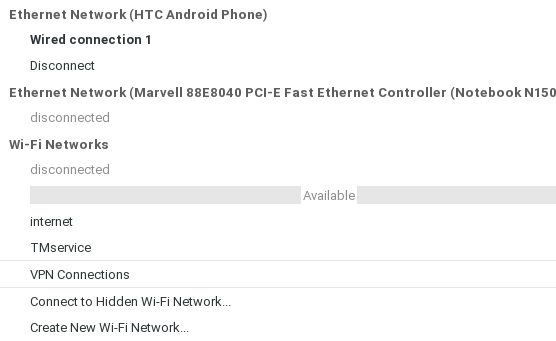Tech
Roughing it, with Linux
I've been traveling, and camping, for a couple of weeks, accompanied by a Linux system. Here are a few comments and observations.

I have been traveling for about two weeks now, spending 10 days camping in Iceland and now a few days on the ferry to get back. For this trip I brought along my Samsung N150 Plus (a very old netbook), loaded with openSUSE Linux 42.3.
The overall experience has been good; here are a few specific notes.
- Even on the very old Atom CPU, performance has been good. I have Xfce and i3 loaded on this netbook, and I am using i3 most of the time. Boot time is reasonable, and response time in applications is good.
 Image: J.A. Watson
Image: J.A. Watson - Linux provides all of the applications and utilities I need for this kind of trip, and more. Browser, email, picture download, management and editing, more.
- Network connectivity has been flawless. Most places have Wi-Fi, of course, and that is pretty much a snooze. But at least one place still had only wired connections (this is in the middle of nowhere in Iceland, remember), so it was good to have a 'real' computer with a 'real' wired network connection.
- Now, returning on the ferry there is no free Wi-Fi (or free anything else). I had to pay for a Wi-Fi connection, and that was good for only one device. The smartphone got priority, of course. But I could then connect the smartphone to the netbook with a USB cable (the same cable I normally used for charging), and share the internet connection. openSUSE recognized that as "wired connection", with absolutely nothing for me to do - no configuration, no adjustment, just plug it in and watch the internet connection come up.
- In return, the netbook charged the smartphone battery, so this seemed like a pretty good trade to me.
Now, this is not exactly big news, other than the fact that everything "just worked", which is what I have gotten used to expecting from Linux.
Equally as important and pleasing is what Linux did not do on this trip:
- It did not take an eternity to boot on this old hardware
- It did not suddenly decide to start downloading and installing "important updates"
- It did not give me any grief about the various types of network connections, or make me do anything special to get the USB network connection up and running
- It did not get attacked/infected/locked/ransomed by whatever the latest malware floating around the internet might be.
This is just another example of the fact that Linux is very well suited and usable for all sorts of common (or less common) situations.